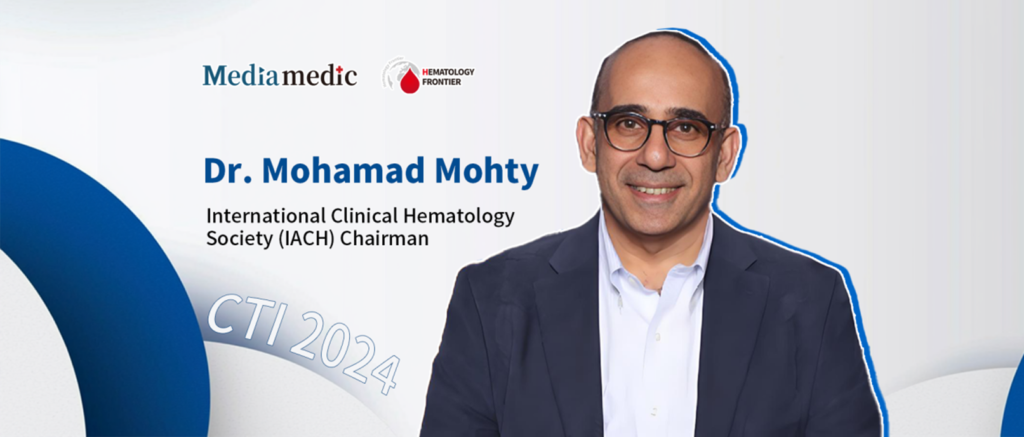
From November 14th to 17th, 2024, the Cellular Therapy and Immunotherapy Conference (CTI) was grandly held in Hangzhou, China, gathering top experts, scholars, and industry leaders in the field of global cell therapy and immune therapy. The conference served not only as an international platform for academic exchange but also as an important window to showcase the latest scientific research and promote the development of the field. During this conference, "Hematology Frontier" specially invited the conference chair and the chairman of the International Academy for Clinical Hematology (IACH), Dr. Mohamad Mohty from Sorbonne University , France, to share his insights on the latest treatment advances in Graft-Versus-Host Disease (GVHD), aiming to provide valuable insights for clinicians and researchers and to explore the future direction of GVHD treatment.Oncology Frontier-Hematology Frontier:What do you consider to be the most significant advances in the treatment of graft-versus-host disease (GVHD) in recent years? and how have these advancements changed the treatment experience and prognosis for patients?
Dr. Mohamad Mohty:Hi, everybody. Thank you very much for the invitation. I think the issue of GVHD is a very important topic because we know that allogeneic stem cell transplantation remains today as the only curative treatment for many blood diseases.
But unfortunately, several patients are still struggling with graft-versus-host disease (GVHD), especially acute but also chronic GVHD. And we have some good news because both in acute and chronic GVHD we have some new treatments, new drugs being approved.
And this is extremely important because we had almost more than 40 years of stagnation where we didn’t have any new drugs except for high-dose corticosteroids.
So I think it is a very exciting era for the field of GVHD, and this will make the transplant procedure much better tolerated for the patient. And this, in my opinion, will allow us to cure more patients with a good quality of life.
Oncology Frontier-Hematology Frontier:Preventing GVHD remains a critical part of post-transplant management. Could you share some of the latest preventive strategies and how they are improving patient survival rates and quality of life?
Dr. Mohamad Mohty:The most important intervention in graft-versus-host disease is about prophylaxis and prevention. And actually, it is much better and more effective to try to prevent graft-versus-host disease rather than trying to treat it. And again, I think we have seen some very important advances in the last decade. ATG and PTCy are very major drugs for the prevention of graft-versus-host disease.
And more recently, we have seen the advent of the use of high-dose post-transplant cyclophosphamide, which is infused after the injection of the stem cell graft. And actually, now we have studies showing very convincing positive results combining ATG and post-transplant cyclophosphamide. So this new prevention approach is extremely important because, of course, the hope is that we will have less acute and less chronic GVHD, and this is extremely important for the patient.
Oncology Frontier-Hematology Frontier:What are the current treatment challenges for patients with refractory cGVHD? How should future research address these challenges to provide better treatment options for patients?
Dr. Mohamad Mohty:Refractory chronic GVHD is really a very difficult and terrible condition because it alters the quality of life of the patient. Patients have a high rate of infectious complications due to the long-term use of high-dose corticosteroids. They also have many different complications. And this is very challenging because these patients are, in theory, cured of their blood disease. However, they are really facing, on a daily basis, the issue of severe chronic GVHD. We are lucky because now we have new drugs coming into this field, such as recently introduced ruxolitinib, which is extremely effective, very safe, and easy to use.
We also have belumosudil, which is a ROCK inhibitor. Another oral, very exciting drug with very effective results. Recently, there was also the publication of new data about a monoclonal antibody, Axatilimab-Csfr(Niktimvo). You can see now, with three new drugs in the field of chronic GVHD—ruxolitinib, belumosudil, and Axatilimab-Csfr(Niktimvo)—I think the future looks bright, and I hope we will be able to minimize the incidence and severity of chronic GVHD.


